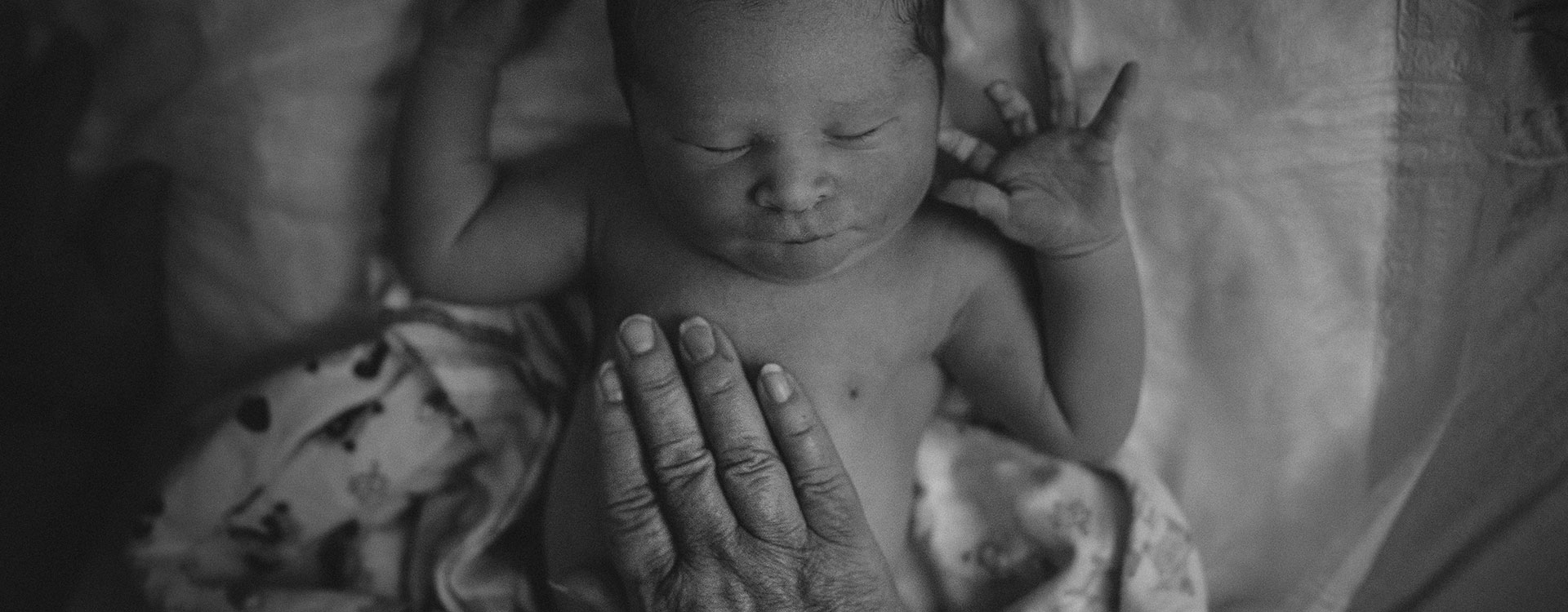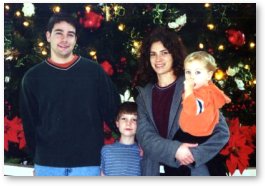Hannah, my first child, was born in a hospital, and although her birth was unmedicated, it was not a natural birth. I’d arrived at the hospital at 8 cm and very much in control, but I ended up in the helpless bug position, with my baby (as she, herself, describes it 5 years later) being sucked out by a vacuum. (“I know, I know, she says, not like the big vacuum cleaner…” it may not be technically accurate, but I like the drama.) Afterward, I clung to the fact that the birth was unmedicated. I did that, I think, because it was the only thing that allowed me to gloss over the awful sense that I had not given birth. My baby was delivered, by a doctor, in a humiliating spectacle (that was viewed by what seemed like every spare staff member on the floor). Not having been medicated was the one shred of my experience that remained my own. I’ve always said that everything was fine until I laid down in that bed to be monitored. Then suddenly there was a fetal heart tone problem. And it got worse. And they got more concerned. And then there was just no choice. They had to do a vacuum extraction. (This all took about a whopping ten minutes maybe). And I spent the next couple of years agonizing. Why didn’t I just ask them to try monitoring while I was standing, or on my side? I never would’ve set foot in that bed if they hadn’t asked me to. There must be something to that! If I’d asked them to try monitoring that way I know it would’ve been different. But I hadn’t. Instead I weakly asked the nurse “Do I have to be on my back?” as she readied the stirrups, “Oh no,” she answered casually, not even pausing to look at me, “we’ll prop you up!” Well, that wasn’t what I meant. I wanted to squat. I wanted to be in charge, to give birth! Instead I relinquished control, to the point, in fact, that even well into pushing, every time I felt a contraction coming on, I asked for permission to push. I didn’t want to do the wrong thing and mess up the vacuum extraction! It’s true, that is exactly what I was thinking. I am an educated person and I was not ignorant about birth: I read Bradley books, Rahima Baldwin, Sheila Kitzinger and Penny Simkin, I took classes at CHOICE, and there I was thinking that I might mess up the birth of my child if I simply went ahead and gave birth to her. Once I was up in stirrups, I lost all control. I became confused and unable to make out what it was my body was doing. I knew I had to bear down, but I couldn’t. Each contraction ended with me emitting a high pitched scream until the nurse barked, “Cas, no noise. Hold your breath.” I felt that underneath her smiling veneer she was sneering, “Here’s your natural birth! Not as strong as you thought you were, huh?” I felt as if everyone in the room must have walked out rolling their eyes at my “performance.” So although I’ve always proudly proclaimed that I had an unmedicated birth, I harbored tremendous feelings of disappointment. I felt like a fool and a failure. I was the doula at a birth a couple years later where a woman down the hall was screaming like I had. As I stood there longing to run down the hall and help her, the dad I was working with turned to me and said, “God, if you’re going to have a natural birth, you’d think you’d prepare for it a little bit!” I cringed. That’s me he’s talking about. Five years later, as I stood in the shower reliving the birth of my day-old second child, Isaac, I suddenly became aware that I was feeling joy rather than regret. During this birth, I’d made all manner of strange noises. I’d wailed, “I can’t do this,” at one point, and there’d been a part of me, throughout, that held a very firm conviction that this birth sucked and I was not going to participate one minute longer. But I wasn’t ashamed of any of that. It made me smile, in fact. The difference? I was at home, in my element, where I had to contend only with people that I knew and trusted. And, more importantly, I had caregivers who I trusted not to wall themselves off from my pain. We are certainly not a culture that is willing to assign any value to pain. For most of us, it serves merely as a harbinger of illness. But midwives, by nature, must embrace it. Each woman’s pain is the instruction manual for her child’s birth. By reading my expressions of pain, my midwives were able to gauge the stage of my labor, what they needed to do, and what I needed to hear to get my job done. When your pain is so essential to your caregiver, it is impossible to feel ashamed of it. I still wish that I would have been more assertive at Hannah’s birth, but giving birth in a place where you must plan a strategy and be assertive is not my ideal. I understand why nurses and doctors tend not to get down in the trenches with their patients. It is exhausting work being with people who are in pain. And if you don’t believe that pain is necessary, I can see how you might really resent a person who is asking you to give of yourself in that way when they could just have an epidural instead. But if just one person had listened to my pain, and helped me understand what to do with it, I think my attitude about that birth would have been completely different, even despite the vacuum extraction. Because this time, I didn’t have to deal with anything but giving birth, I was much more focused on my body. And what a gift that was! Every sensation had a strange clarity, as if I could see inside myself. I was aware of the source of each sensation and what it was accomplishing. Pressing on what was left of my cervix, Isaac’s head felt like a head, as clearly as if I were holding it in my hand. Birth is not some scary foreign experience. The sensations are as comfortingly familiar as they are intensely painful. When I had Hannah, I had the odd sensation of having given birth from outside of my body, and it left me feeling very empty, But with Isaac I had the chance to give birth from deep within myself, and it has given me a profound sense of completion and peace. I truly understand now that absolute faith in myself is not a requirement for accomplishing a goal. Doubt is determination’s shadow of the thing, but not nearly as substantial. The medicalization of childbirth reminds me of the story of the mouse bride. The mouse parents love their daughter and therefore decide that the only suitable husband is the one who will make her truly happy. And the only one who will make her truly happy is the most powerful creature in the world. They go to the sun, thinking he must be that creature, but he confesses that he is no match for the cloud who blots him out. The cloud confesses that he is no match for the wind, who blows him about. This goes on until they get to the mountain, who humbly points out all the holes that run through him. He tells the mice that when there are enough holes, he will eventually crumble. And of course, it is mice who have made the holes. They are astounded to discover that they, in fact, are the most powerful creatures in the world. No matter how technologically sophisticated we become, it is still the human body that creates life, nurtures it, and gives birth to it. And there is nothing like the glorious and powerful experience of giving birth amidst people who appreciate that fact. That is the truly joyful birth.
Cas Chermer received a B.A. from Eugene Lang College in 1992. She lives with her husband, Dave Schreiber, in Upper Arlington, Ohio where he teaches high school science. For the past eight years she has applied her education to such questions as, “Do cats blink?” and to the perfection of a technique for freeing the stuck wheels of matchbox cars. She is currently working on a unified field theory that will provide a definitive, universal and irrefutable answer to the question “Why not?!” The family is expecting baby number three who will emerge into the wonderful hands of a CHOICE midwife in April.

